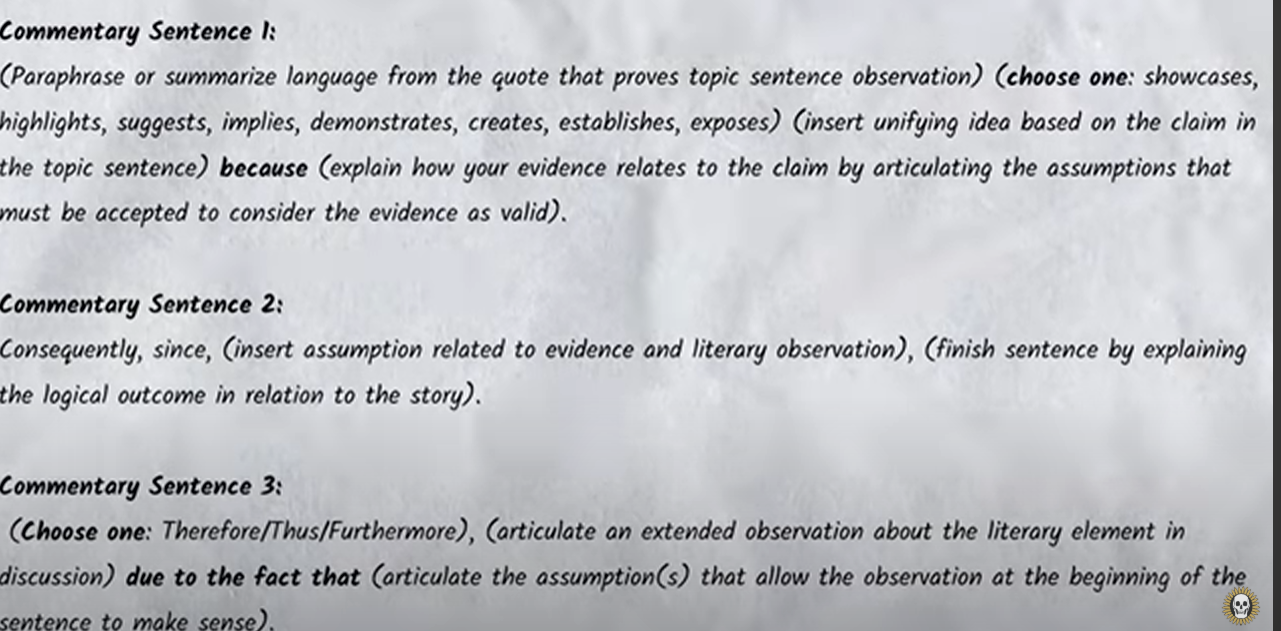In-Depth Notes on Writing Commentary for Poetry Essays
Introduction to Commentary in Poetry Essays
Commentary is essential for scoring well on poetry essays in high school and college.
Writing commentary for poetry can be particularly challenging.
Fortunately, there are tips, templates, and examples available to aid in this process.
Importance of Commentary
Good commentary allows you to connect your evidence to your topic sentence effectively.
It is crucial to ensure that the evidence you present relates back to your main claim.
Overview of Earlier Content
In previous videos, the focus was on integrating evidence into body paragraphs.
This session will build on that by guiding you through the construction of commentary.
Template for Commentary

The commentary template consists of three sentences focused on connecting evidence to claims:
First Sentence: Paraphrase the evidence, articulating its meaning and context.
Second Sentence: Explain how this evidence supports the claim in your topic sentence.
Third Sentence: Discuss the broader implications or significance of the evidence.
The template encourages critical thinking and deeper analysis, crucial for higher AP exam scores.
Example of First Sentence of Commentary
Start with an -ing verb describing what the author is doing, then connect to the claim of the topic sentence.
Add “because” after connection to further connect how what occurs in the story (what the literary device does) to reflect what it is trying to tell

Importance of Logical Reasoning
Adding phrases like "because" prompts deeper analysis and logical reasoning.
Example: "Constructing a frame narrative in and of itself highlights the fractured state of the statue because…"
Building Further Commentary
Second Sentence: Start with "Consequently" to connect your prior observation to a result.
Example:

Third Sentence: Use words like "thus" or phrases like "due to the fact that" to articulate logical connections further.
You can use this as a way to connect to your other literary device, or expand on it if already done so
Example:

Expansion of Commentary
Continue adding sentences to elaborate on connections and implications.
Employ transitional phrases like "Furthermore," "However," and "Therefore" to strengthen your arguments.
Example: "Furthermore, the greater pauses that both the initial speaker and secondary speaker generate…"
Final Thoughts on Commentary
Effective commentary can significantly improve your poetry essay scores.
Use the commentary stems to maintain structure while introducing original reasoning.
Practice is encouraged to refine your skills in constructing commentary.
Conclusion and Next Steps
After mastering commentary, focus on writing conclusions for your poetry essays.
More resources and templates may be available in the video series or linked materials in the description.